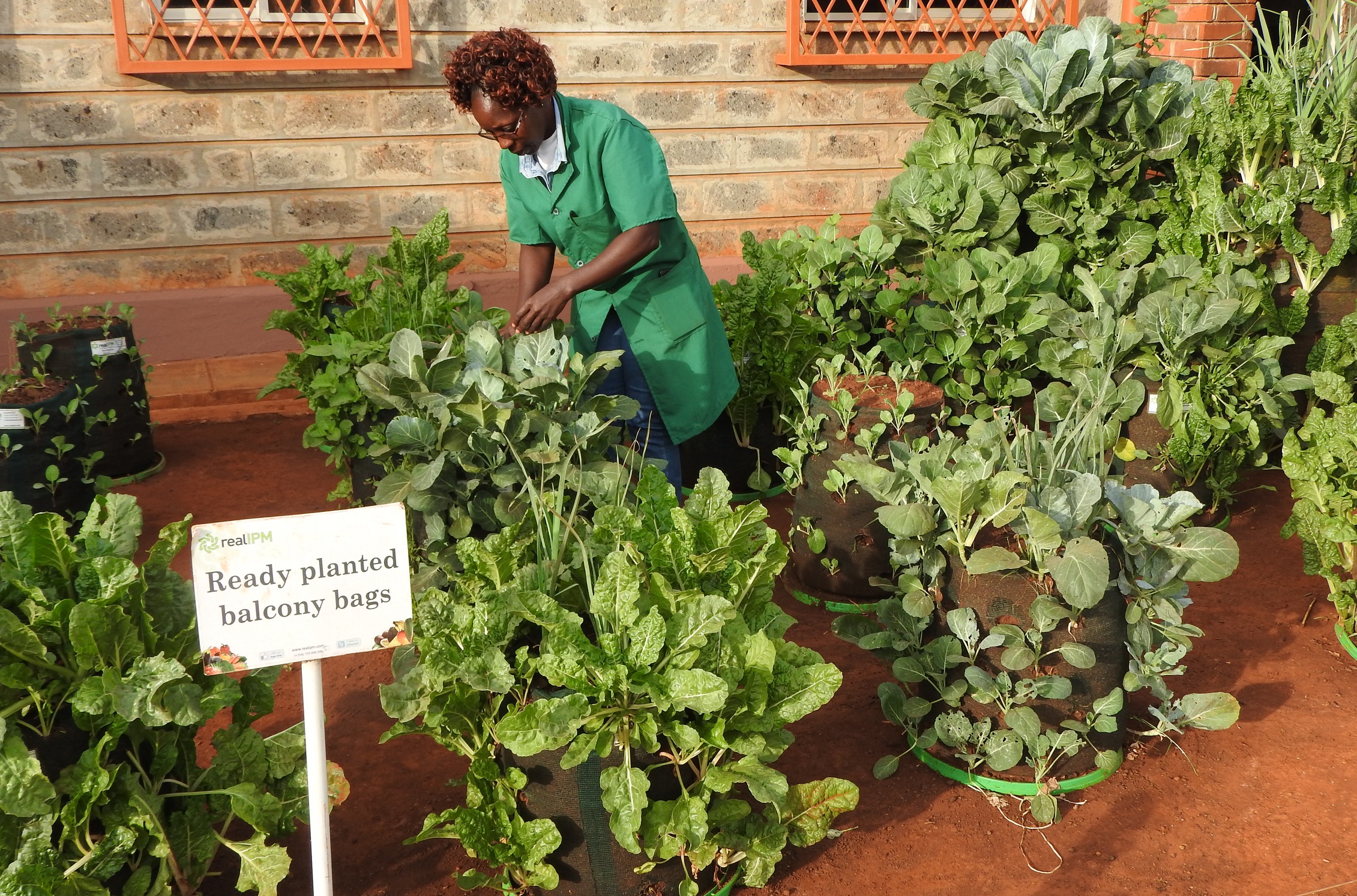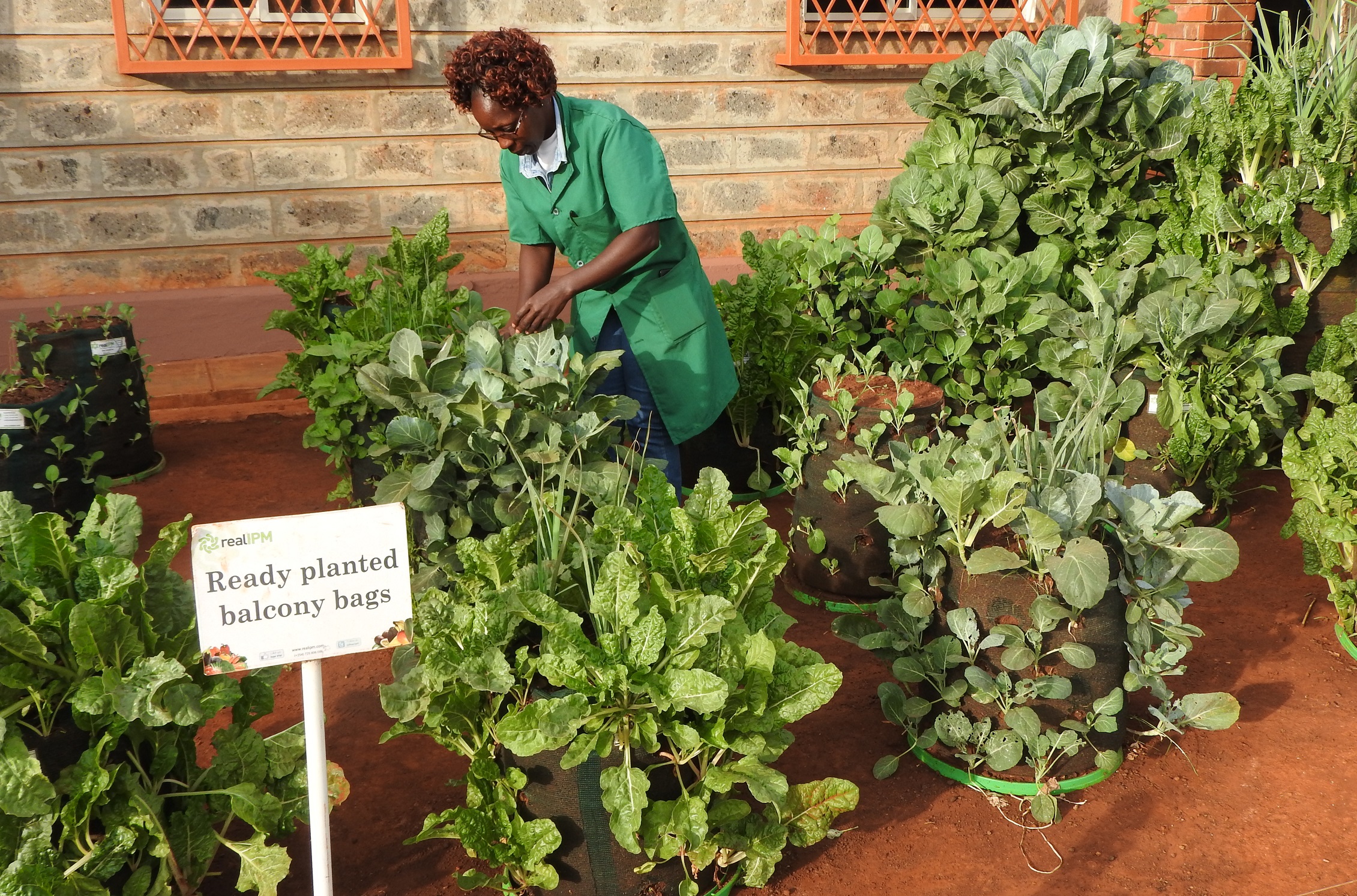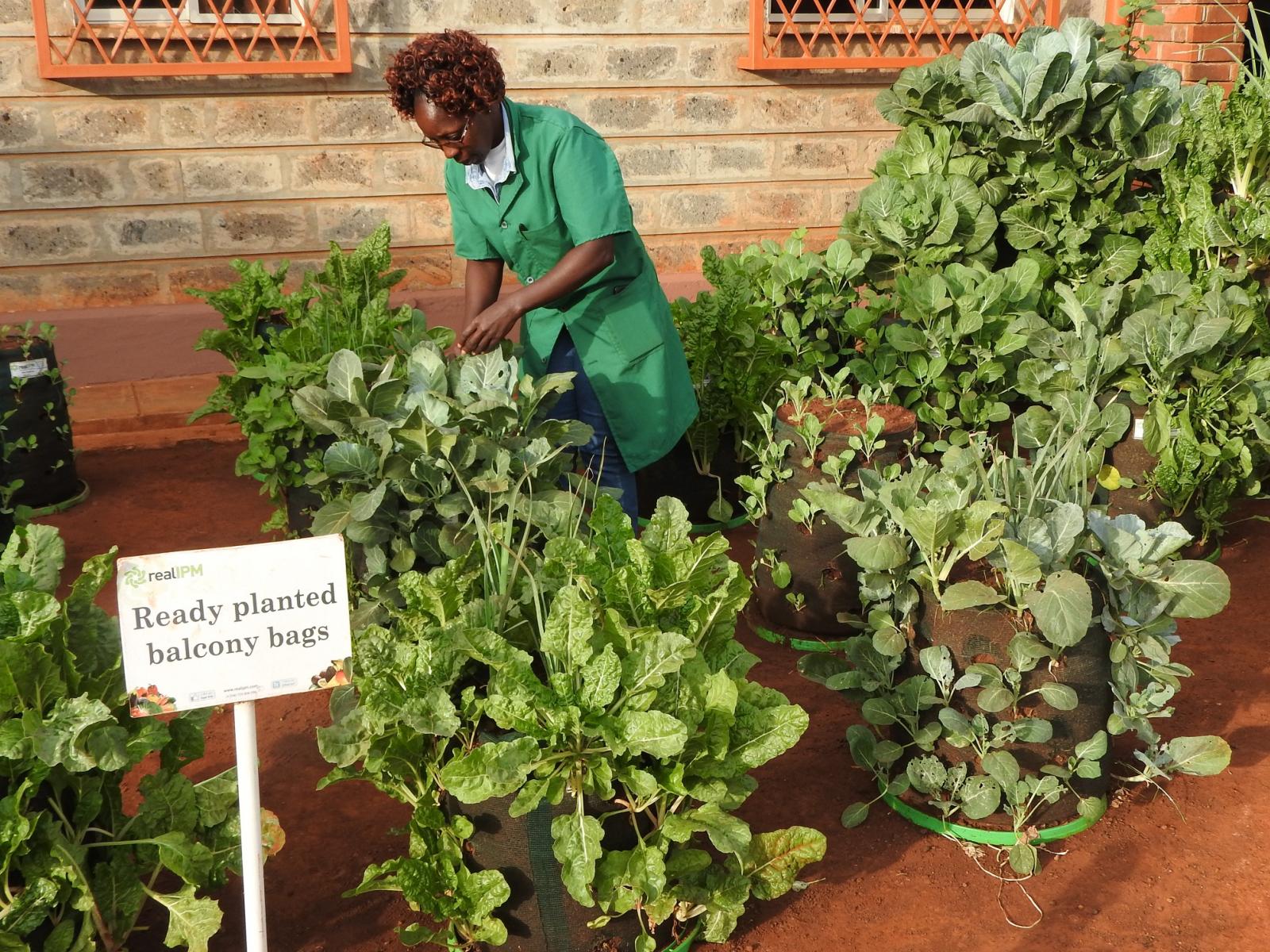An Overview Of Our Solution
- Population Impacted:
- Continent: Africa
Organization type
Population impacted
Size of agricultural area
Production quantity
People employed
Describe your solution
Describe your implementation
External connections
What is the environmental or ecological challenge you are targeting with your solution?
Describe the context in which you are operating
Real Impact for Sustainable Growth is an NGO that promotes crops & technologies for sustainable agriculture and improved nutrition. We work in rural and peri-urban areas, offering a suite of farming inputs and technical services. We promote a means to grow nutritious foods through kitchen gardens and especially vertical bags.
Real Impact has established kitchen gardens/ vertical bags locally including: Thika School for the Blind, Joy town School for Physically Challenged, Macheo Children Centre, Watoto Wenye Nguvu Orphanage, Thika Health Management Team at District hospital and Matarajio Women’s Group. These kitchen gardens deliver food security and improved nutrition to the vulnerable communities.
Two community examples include:
Watoto Wenye Nguvu Orphanage has 9-ha farm where an Institutional Kitchen Garden has been established.
Macheo Childrens Centre cares for 65 destitute girls and boys under the age of 12 and has a school-feeding programme for 7 primary schools.
How did you impact natural resource use and greenhouse gas emissions?
Language(s)
Social/Community
Water
Food Security/Nutrition
Economic/Sustainable Development
Climate
Sustainability
Real Impact is a registered NGO. However, it has been recognized that Real Impact could not rely on donor funding or grants therefore it has developed a social enterprise of selling training, manufacturing and then selling inputs (bags, IPM products) and acting as an agent to Real IPM. However in order to maximize coverage, Real Impact has also sort donor support to extend its reach and speed uptake of these technologies. By generating income Real Impact has developed independence from donors and achieve a level of sustainability.
Return on investment
Entrant Image

Entrant Banner Image

